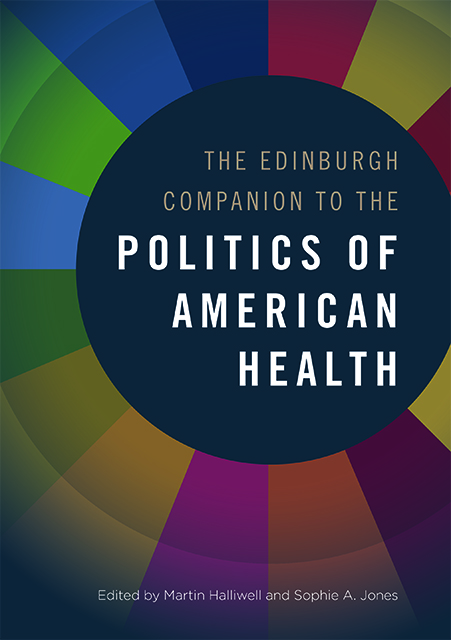Book contents
- Frontmatter
- List of Contents
- Notes on Contributors
- Introduction: The Political Landscapes of American Health, 1945–2020
- I Geography, Community and American Health
- II Critical Health Conditions: Debates and Histories
- III The Politics of Children's Health
- IV The Institutional Matrix of Health Care
- V The White House, Congress and Health Reform
- VI Justice, Ethics and American Health
- VII Public Health and Global Health
- General Bibliography
- Index
Introduction: The Political Landscapes of American Health, 1945–2020
Published online by Cambridge University Press: 12 August 2023
- Frontmatter
- List of Contents
- Notes on Contributors
- Introduction: The Political Landscapes of American Health, 1945–2020
- I Geography, Community and American Health
- II Critical Health Conditions: Debates and Histories
- III The Politics of Children's Health
- IV The Institutional Matrix of Health Care
- V The White House, Congress and Health Reform
- VI Justice, Ethics and American Health
- VII Public Health and Global Health
- General Bibliography
- Index
Summary
On 20 July 2021, four leading United States health officials addressed a congressional hearing, ‘The Path Forward: A Federal Perspective on the Covid-19 Response’, held by the US Senate Health, Education, Labor and Pensions Committee, twenty months after the novel coronavirus was first identified as a disease event in Wuhan, the capital of Hubei Province in central China. Rather than providing a conclusive review of the highly contagious SARS-CoV-2 virus that swept the United States and over two hundred countries through 2020, the committee recognized that the nation remained in a perilous state, with the Delta variant (first identified in India in December 2020) at that time causing more than 80 per cent of Covid-related illness and death among US citizens. The domestic and global politics of the hearing are evident from these basic facts about viral transmissibility and the framing of two Asian countries by many politicians and reporters as significant international health threats, despite the efforts of the World Health Organization to classify the sequence of Covid-19 variants alphabetically (Alpha to Omicron) so as not to stigmatize particular nations or peoples.
The co-chair, Senator Patty Murray, opened the hearing by highlighting the ‘promise and peril’ of this moment, and then the four health officials spoke in turn about the importance of the federal vaccination program for saving lives and containing viral spread, confirming that the most severe responses to Covid-19 were among unvaccinated Americans. The drama of the otherwise cordial hearing centred on a barbed exchange between Rand Paul, Republican senator from Kentucky and a trained ophthalmologist, and virologist Anthony Fauci, the long-standing director of the National Institute of Allergy and Infectious Diseases, who had been a key figure in the White House Coronavirus Task Force during the final year of the Trump administration and was now President Biden's Chief Medical Advisor. Instead of addressing questions of disease prevention, Rand Paul swerved to the unproven theory that the National Institutes of Health (NIH) directly funded ‘gain of function’ research at the Wuhan Institute of Virology during the 2010s, thereby making SARS-related viruses transmissible between bats and humans. Paul began by reminding Fauci that it is ‘a crime to lie to Congress’, recalling that Fauci had stated to this committee on 11 May 2021 that ‘the NIH has not ever and does not now fund gain of function research’ at the Wuhan laboratory.
- Type
- Chapter
- Information
- Publisher: Edinburgh University PressPrint publication year: 2022



